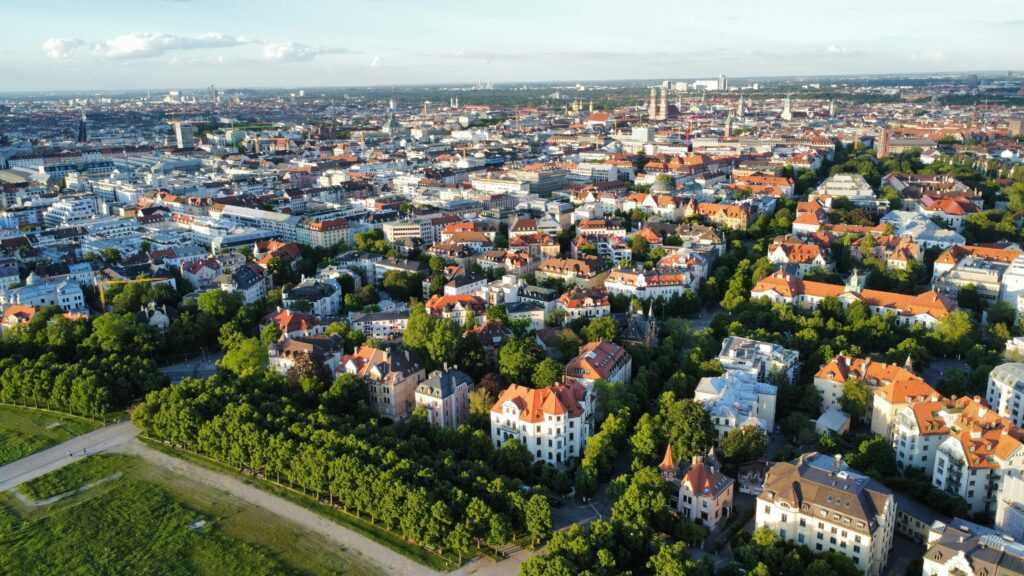Why Invest In Commercial Real Estate?
Commercial real estate offers higher income potential than residential properties, with average annual returns ranging from 6% to 12%, depending on location and asset type. It generates consistent cash flow through leases, often secured with long-term contracts.
Investing in commercial properties diversifies portfolios and reduces risk. Multi-tenant buildings, for example, spread income sources across various tenants, minimizing revenue dependency on one entity.
Property value appreciation adds an additional layer of profit. Cities with strong economic foundations and increasing demand for office spaces, retail units, and industrial properties often see steady market growth.
Tax benefits make commercial real estate attractive. Depreciation, mortgage interest deductions, and operating expense write-offs are common advantages for investors.
The commercial sector adapts to market needs. Mixed-use developments and co-working spaces highlight how asset versatility supports profitability and resilience in changing markets.
Factors To Consider When Choosing A City

Identifying the right city involves assessing several critical factors that directly influence the profitability and sustainability of commercial property investments. Each factor ensures that investments align with market demand and long-term growth.
Economic Growth And Stability
Cities with strong economies provide a reliable foundation for commercial real estate investments. I look for indicators like GDP growth, low unemployment rates, and a diverse mix of industries, which signal economic stability. For instance, metropolitan areas with thriving technology, finance, or healthcare sectors tend to sustain long-term demand for office and retail spaces.
Population Trends And Workforce
Rising populations and skilled workforces indicate growing demand for commercial properties. Cities experiencing steady population growth, especially with an influx of young professionals or highly qualified workers, often see increased activity in office and retail spaces. For example, tech hubs and cities with reputable universities often attract a dynamic workforce that can drive commercial market demand.
Infrastructure Development
Urban areas with substantial infrastructure investments, such as transit systems, ports, and smart city projects, become hubs for business activity. I prioritize locations with efficient transportation networks and access to utilities, as they increase accessibility and appeal to tenants. For instance, cities adding new airport facilities or revitalizing downtown districts often experience a surge in commercial property values.
Regulatory Environment
Cities with business-friendly regulations support investment viability. I avoid areas with excessive property taxes or restrictive zoning laws that could hinder development. Instead, I focus on locations offering incentives like tax breaks or streamlined permitting processes, which encourage commercial growth and improve profitability. For example, some states provide economic enterprise zones to attract businesses and investors.
Top Cities For Real Estate Investment In Commercial Properties
Certain cities are emerging as prime destinations for commercial real estate investment due to their robust economies and favorable market conditions. Here’s a detailed look at top cities offering lucrative opportunities in this sector.
City 1: Key Features And Opportunities
New York City offers unparalleled access to global markets and a thriving financial sector. Its high population density and robust demand for office spaces, co-working hubs, and retail properties create consistent investment opportunities. Developments in Hudson Yards and Midtown signal long-term growth in commercial real estate.
City 2: Key Features And Opportunities
San Francisco stands out due to its thriving technology ecosystem, anchored by major companies like Google, Apple, and Salesforce. The Silicon Valley spillover has created demand for office spaces, industrial hubs, and mixed-use developments. The city balances high entry costs with substantial long-term appreciation.
City 3: Key Features And Opportunities
Dallas boasts a business-friendly environment, lower property taxes, and a surge in corporate relocations. The growth of sectors like healthcare, logistics, and technology drives demand for industrial spaces, office parks, and retail centers. The city’s expanding infrastructure further enhances its investment appeal.
City 4: Key Features And Opportunities
Seattle’s strong job market and technology-driven economic framework make it a commercial real estate hotspot. Amazon and Microsoft headquarters fuel steady demand for offices and mixed-use projects. The city’s emphasis on sustainability also supports green building investments.
City 5: Key Features And Opportunities
- Miami combines international trade, tourism, and a vibrant cultural scene to drive its commercial real estate market.
- Growing industries like hospitality, retail, and logistics create opportunities for multi-purpose buildings, logistics centers, and prime retail properties.
- Its strategic location as a gateway for Latin America adds a competitive edge.
Emerging Cities To Watch
I’ve identified several emerging cities where commercial real estate investment shows promising growth driven by innovation, demographic trends, and economic diversification.
Austin, Texas
Austin’s expanding tech sector and strong population growth enhance demand for office spaces. The city’s thriving startup ecosystem and high influx of young professionals support continued commercial development and property value appreciation.
Nashville, Tennessee
Nashville’s vibrant entertainment and healthcare industries drive its economic expansion. Increasing business relocations and infrastructure projects boost demand for retail and mixed-use developments.
Charlotte, North Carolina
Charlotte’s growing financial sector solidifies it as a commercial hub. Office spaces and industrial properties see high demand due to regional business growth and improved connectivity.
Denver, Colorado
Denver attracts investors through industries like renewable energy and aerospace. Rising urban development and a balanced regulatory environment foster sustainable growth in commercial properties.
Phoenix, Arizona
- Phoenix benefits from affordable property prices and rapid population growth.
- An influx of logistics and manufacturing companies fuels demand for industrial spaces and commercial facilities.
- These cities showcase dynamic growth characteristics, offering lucrative opportunities for maximizing long-term returns in commercial real estate.
Tips For Successful Real Estate Investments
Conduct Comprehensive Market Research
I analyze market trends and economic indicators before investing in a property. High-growth sectors, increasing job opportunities, and population influx in a city signal demand for commercial spaces. For example, understanding the tech boom in cities like Austin or San Francisco can guide investment strategies.
Evaluate Property Location and Accessibility
I prioritize properties near transportation hubs, business districts, or thriving commercial areas. Proximity to amenities and accessibility increases tenant demand and drives higher rental returns.
Assess Financial Viability and ROI
I calculate projected income, operating expenses, and potential appreciation to evaluate ROI. Properties in economically robust cities like Dallas or Charlotte often yield strong, consistent cash flow when thoroughly assessed.
Diversify Across Property Types
I include various types of properties, such as office spaces, retail, and industrial units. For instance, investing in Denver’s industrial sector while targeting retail in Phoenix mitigates potential market risk.
Leverage Expertise from Local Professionals
I engage licensed real estate agents, property managers, and legal experts with knowledge of the local market. Their insights ensure compliance with regulations and uncover undervalued opportunities.
Stay Informed on Regulatory Policies
I monitor tax codes, zoning regulations, and incentives in target cities. Cities like Miami and Nashville often offer business-friendly policies, which enhance investment profitability.







































































































































































































































































































































































































































































































































































































































































































































































































































































































































































































































































































